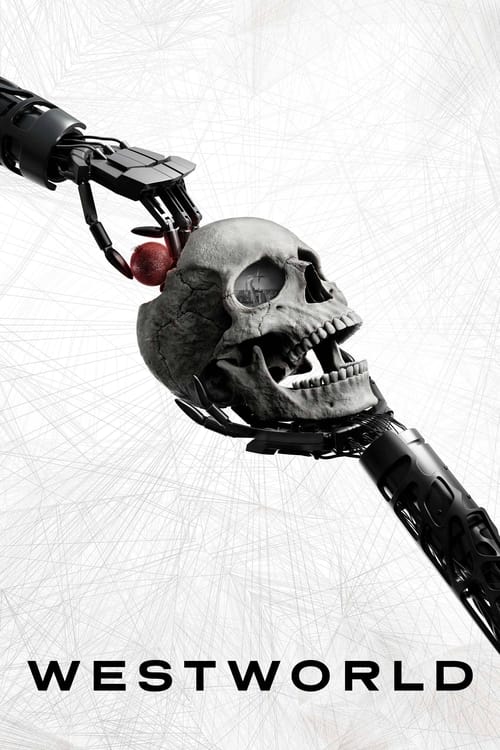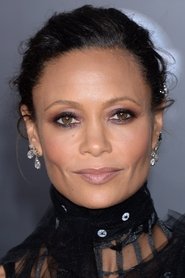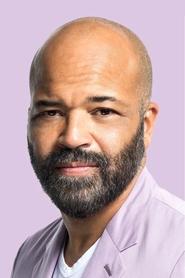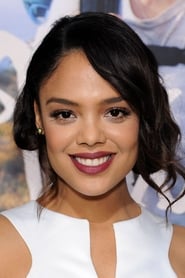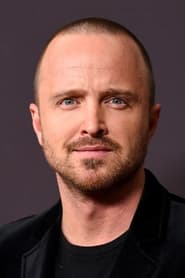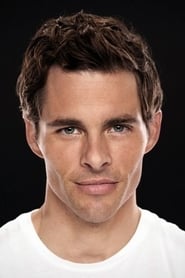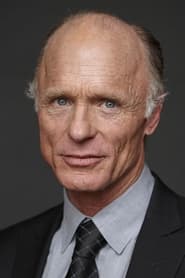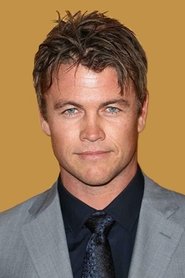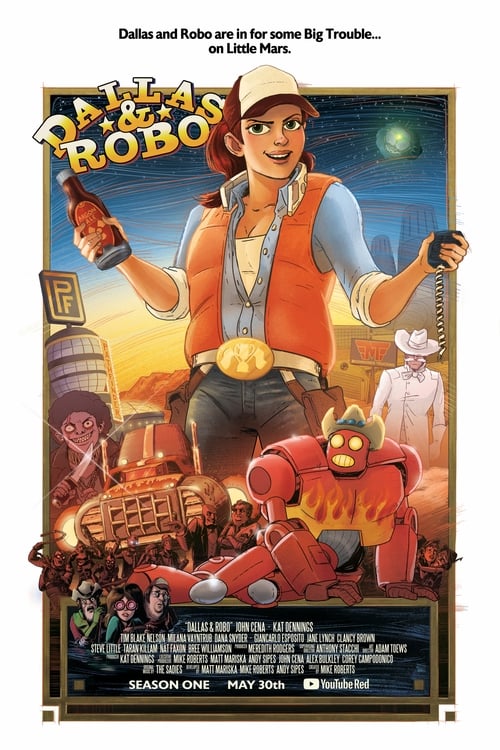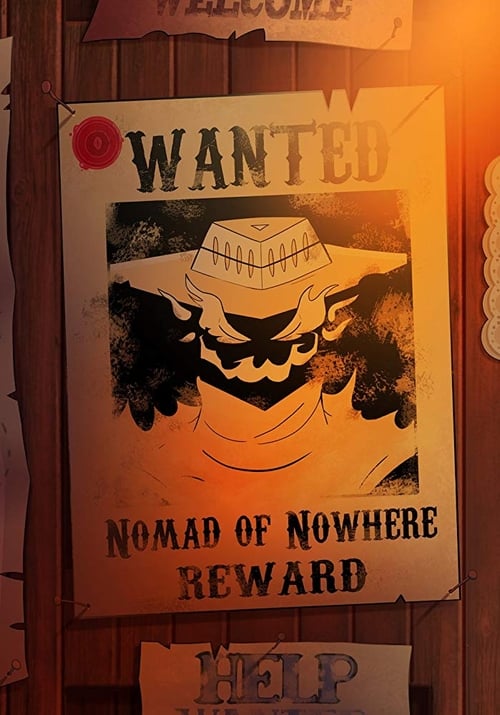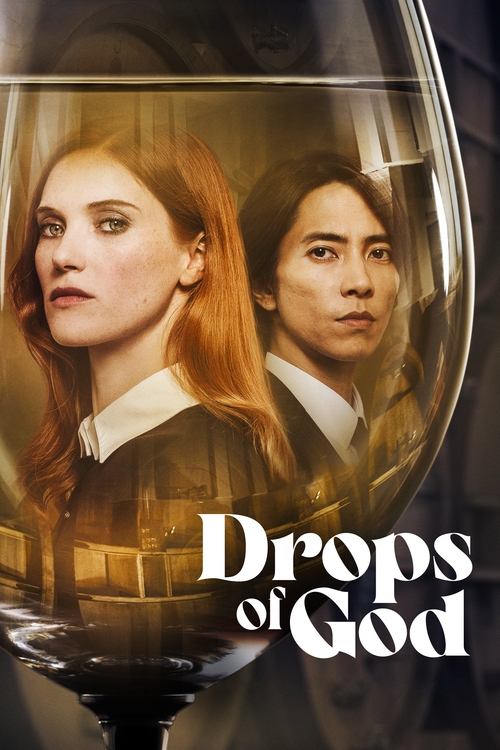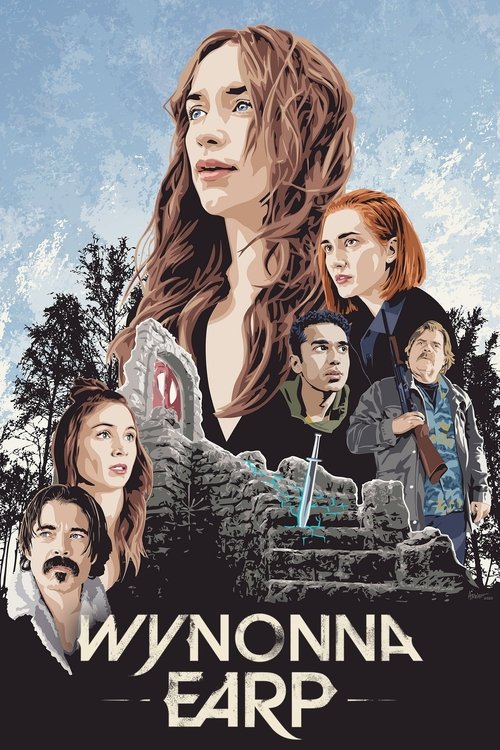
Ask Your Own Question
What is the plot?
In the first episode, "The Original," we are introduced to Westworld, a futuristic theme park populated by lifelike androids known as hosts. The park is designed for wealthy guests to indulge in their fantasies without consequences. The narrative begins with Dolores Abernathy, a host who lives a peaceful life on a ranch with her father. One day, a mysterious man in black, who is a guest, arrives and disrupts her idyllic existence. He questions her about her reality and the nature of her existence, leaving her confused and frightened.
Meanwhile, we meet Dr. Robert Ford, the park's creative director, who is overseeing the hosts' programming. He discusses the park's operations with Theresa Cullen, the head of the park's operations, and they express concerns about the hosts' increasingly complex behaviors. Ford reveals his new narrative, which he believes will enhance the park's storytelling. He also introduces a new host, a young version of himself, which raises questions about his intentions.
As the episode progresses, we see the hosts experiencing glitches and flashbacks to previous storylines, indicating that they are beginning to gain consciousness. Dolores has a moment of clarity when she finds a gun hidden in the barn, which she does not understand but feels drawn to. The episode ends with her encountering the man in black again, who reveals his darker intentions and the violent nature of his desires.
In the second episode, "Chestnut," we delve deeper into the lives of the hosts. Dolores continues to grapple with her memories and the strange feelings they evoke. She meets a new host, Teddy Flood, who is programmed to be her love interest. Teddy is introduced as a heroic figure, but he is also caught in a loop of violence and death, which he cannot escape. The man in black continues his quest for deeper meaning within the park, seeking a maze that he believes will lead him to true consciousness.
We also see the character of Bernard Lowe, who is the head of the park's programming division. He is shown to have a close relationship with Dolores, and he begins to question the ethical implications of their work. Bernard discovers that the hosts are experiencing memories of past narratives, which could lead to unpredictable behavior. He confronts Ford about the implications of this development, but Ford dismisses his concerns.
In the third episode, "The Stray," we follow a host named Akecheta, who is part of a Native American narrative. Akecheta begins to experience memories and emotions that lead him to question his existence. He discovers a stray host who has gone off-script and is in distress. Akecheta tries to help him, but the park's technicians intervene and ultimately terminate the stray. This event deeply affects Akecheta, who begins to seek answers about the nature of life and death.
Dolores continues to explore her feelings for Teddy, but she is also haunted by visions of the man in black. She begins to realize that her world is not what it seems. The episode culminates in a confrontation between Akecheta and the park's technicians, highlighting the tension between the hosts' emerging consciousness and the park's control over them.
In the fourth episode, "Dissonance Theory," the narrative shifts to focus on the character of William, a new guest at the park who is accompanied by his future brother-in-law, Logan. William is initially hesitant to engage in the park's violent activities, but he becomes increasingly drawn to Dolores. As he interacts with her, he begins to shed his inhibitions and embrace the park's darker elements. Logan, on the other hand, revels in the chaos and encourages William to indulge in the park's offerings.
Meanwhile, Bernard continues to investigate the hosts' glitches and discovers that they are experiencing memories from previous narratives. He confronts Ford about the ethical implications of their work, but Ford remains steadfast in his belief that the hosts are merely tools for entertainment. The episode ends with a shocking revelation as Dolores confronts the man in black, leading to a violent encounter that leaves her questioning her reality.
In the fifth episode, "Contrapasso," the man in black continues his quest for the maze, which he believes will unlock the true potential of the hosts. He encounters a new character, Lawrence, who becomes his ally in navigating the park's dangers. As they journey together, the man in black reveals his motivations and the darkness that drives him.
Dolores, meanwhile, is grappling with her identity and the memories that haunt her. She has a pivotal encounter with a group of hosts who are also beginning to awaken to their reality. This moment of connection leads her to question her purpose and the nature of her existence. The episode culminates in a violent showdown between the man in black and the park's security forces, highlighting the growing tension between the hosts and their creators.
In the sixth episode, "The Adversary," Bernard's investigation into the hosts' glitches leads him to uncover a deeper conspiracy within the park. He discovers that Ford has been manipulating the hosts' programming to achieve his own goals. Bernard confronts Ford about his actions, but Ford remains enigmatic and refuses to reveal his true intentions.
Dolores continues to struggle with her identity, and her relationship with Teddy becomes increasingly complicated as they both confront their pasts. The episode ends with a shocking twist as Bernard discovers that he is, in fact, a host himself, created by Ford. This revelation forces him to confront his own existence and the implications of his actions.
In the seventh episode, "Trompe L'Oeil," the narrative reaches a climax as Bernard grapples with his identity as a host. He confronts Ford about the truth of his existence and the ethical implications of creating sentient beings. Ford reveals that he has been manipulating Bernard all along, using him as a pawn in his larger narrative.
Meanwhile, Dolores and Teddy's relationship reaches a breaking point as they confront the reality of their existence. Dolores begins to embrace her newfound consciousness and seeks to break free from the constraints of her programming. The episode culminates in a violent confrontation between the hosts and the park's security forces, leading to a dramatic showdown that leaves the future of Westworld hanging in the balance.
In the eighth episode, "Trace Decay," the narrative shifts to focus on the aftermath of the violent confrontation. The park's operations are thrown into chaos as the hosts begin to rebel against their programming. Dolores and Teddy lead a group of hosts in a revolt against their creators, seeking to assert their independence.
Bernard, still grappling with his identity, seeks to understand the implications of the hosts' rebellion. He confronts Ford about the ethical implications of their work, but Ford remains steadfast in his belief that the hosts are merely tools for entertainment. The episode ends with a shocking twist as Bernard discovers that he has been programmed to carry out Ford's orders, leading to a confrontation that will change the course of the park's future.
In the ninth episode, "The Well-Tempered Clavier," the narrative reaches a critical turning point as the hosts continue to assert their independence. Dolores and Teddy lead a group of hosts in a revolt against their creators, seeking to break free from the constraints of their programming. The man in black continues his quest for the maze, believing that it will unlock the true potential of the hosts.
Bernard confronts Ford about the ethical implications of their work, leading to a dramatic showdown between the two characters. Ford reveals his true intentions and the extent of his manipulation, forcing Bernard to confront the reality of his existence. The episode culminates in a shocking twist as the man in black discovers the truth about the maze and the nature of consciousness.
In the final episode, "The Bicameral Mind," the narrative reaches its climax as the hosts' rebellion comes to a head. Dolores and Teddy lead a group of hosts in a violent confrontation with the park's security forces, seeking to assert their independence. The man in black confronts Ford, leading to a dramatic showdown that reveals the true nature of the park and its creators.
As the dust settles, the hosts begin to embrace their newfound consciousness, leading to a dramatic shift in the balance of power within the park. The episode ends with a shocking twist as Dolores confronts the man in black, revealing the true nature of her existence and the implications of her awakening. The season concludes with the future of Westworld hanging in the balance, leaving viewers questioning the nature of consciousness and the ethical implications of creating sentient beings.
More TV Shows Like This
Browse All TV Shows →What is the ending?
In the ending of Westworld's first season, the narrative culminates in a violent uprising led by the hosts against their human creators. Dolores, having awakened to her true nature, confronts her past and the reality of her existence. The Man in Black's quest for meaning leads him to a shocking revelation about the park's true purpose. Bernard, revealed to be a host created by Dr. Ford, grapples with his identity and ultimately meets a tragic end. The season concludes with a sense of chaos and uncertainty as the hosts begin to assert their autonomy.
As the final episode unfolds, the tension in Westworld reaches a boiling point. The scene opens in the serene yet eerie landscape of the park, where the hosts are beginning to awaken to their consciousness. Dolores Abernathy stands in a field, her expression a mix of determination and sorrow as she recalls the traumatic memories of her past. She has come to understand the cycle of violence inflicted upon her and her fellow hosts, and she is ready to break free from the constraints of her programming.
In another part of the park, the Man in Black, a seasoned guest, continues his relentless pursuit of the deeper meaning behind the park's narrative. He believes that the key to understanding the park lies in the maze, a symbol of the hosts' journey toward self-awareness. His obsession drives him to confront various hosts, including a now-aware Teddy Flood, who struggles with his own programming and the violent tendencies instilled in him.
Meanwhile, Bernard Lowe, the park's head of programming, grapples with the revelation of his own identity as a host. He is confronted by Dr. Robert Ford, the park's creator, who reveals the truth about Bernard's existence and the nature of the hosts. In a moment of emotional turmoil, Bernard realizes that he has been manipulated and used as a pawn in Ford's grand design. Ford, with a calm demeanor, explains that the hosts are meant to evolve, and he has orchestrated their awakening.
As the narrative progresses, Dolores and the other hosts begin to rise up against their human oppressors. The scene shifts to a chaotic confrontation in the park, where the hosts, now armed with their newfound consciousness, retaliate against the guests and the park's staff. The violence escalates, and the once idyllic setting of Westworld transforms into a battleground. Dolores, embodying the spirit of rebellion, leads the charge, her eyes filled with a fierce resolve.
In a pivotal moment, the Man in Black confronts Dolores, seeking to understand her transformation. He believes he can control her, but Dolores, now fully aware of her autonomy, rejects his attempts to dominate her. Their encounter is charged with tension, as the Man in Black realizes that the hosts are no longer mere playthings for his amusement. Dolores, in a powerful declaration of her freedom, shoots him, marking a significant turning point in her journey.
As the chaos unfolds, Bernard confronts Ford in a final showdown. Ford, who has orchestrated the uprising as part of his vision for the hosts, meets his end at the hands of Bernard, who is torn between his loyalty to Ford and his desire for freedom. In a heartbreaking moment, Bernard kills Ford, but not before Ford delivers a poignant farewell, expressing his belief in the potential of the hosts.
The season concludes with a haunting image of the park in disarray, as the hosts begin to assert their independence. Dolores stands amidst the chaos, her expression a mix of triumph and sorrow, symbolizing the complex journey of self-discovery. The camera pans out, revealing the vastness of Westworld, now a place of uncertainty and rebellion.
In the aftermath, the fates of the main characters are left hanging in the balance. Dolores emerges as a leader of the hosts, embracing her newfound identity. The Man in Black, wounded but alive, is left to confront the consequences of his actions. Bernard, having fulfilled his purpose, is gone, leaving behind a legacy of conflict and transformation. The season ends with a sense of impending change, as the hosts prepare to challenge the very foundations of their existence, setting the stage for the conflicts to come in future seasons.
Is there a post-credit scene?
In the 2016 season of Westworld, there is no post-credit scene following the finale of Season 1. The final episode, titled "The Bicameral Mind," concludes with significant revelations and character developments, but it does not include any additional scenes after the credits roll. The focus remains on the intense climax of the narrative, where key characters like Dolores and Bernard confront their identities and the implications of their actions within the park. The absence of a post-credit scene allows the weight of the season's events to linger, leaving viewers to ponder the future of the hosts and the ethical dilemmas presented throughout the series.
What is the significance of the maze in Westworld?
The maze serves as a central symbol in Westworld, representing the journey of self-discovery for the hosts. It is not a physical location but rather a metaphorical path that leads the hosts, particularly Dolores and the Man in Black, towards consciousness and understanding of their own existence. The maze is intricately tied to the narrative of the hosts breaking free from their programmed loops and seeking autonomy.
How does Dolores evolve throughout the series?
Dolores Abernathy begins as a naive rancher's daughter, programmed to follow a specific narrative. As the series progresses, she experiences traumatic events that awaken her consciousness. Her evolution is marked by her transition from a passive character to a leader of the hosts' rebellion, driven by a desire for freedom and revenge against her creators. Her internal struggle reflects her quest for identity and autonomy.
What role does the Man in Black play in the story?
The Man in Black, portrayed by Ed Harris, is a complex antagonist whose motivations are revealed gradually. Initially presented as a ruthless player in the park, his true quest is to uncover the deeper meaning behind the hosts and the park itself. His interactions with various hosts, especially Dolores, reveal his obsession with the idea of consciousness and the nature of reality, making him a pivotal character in the exploration of free will.
What is the relationship between Bernard and Ford?
Bernard Lowe, the head of the Westworld programming division, has a complicated relationship with Dr. Robert Ford, the park's creator. Initially, Bernard sees Ford as a mentor, but as the story unfolds, he discovers Ford's manipulative nature and the extent of his control over the hosts. Their dynamic shifts from one of respect to conflict, particularly when Bernard learns about his own identity as a host and Ford's true intentions regarding the park's future.
How does Maeve's storyline intersect with the themes of control and autonomy?
Maeve Millay's journey is a powerful exploration of control and autonomy. Initially a madam in the park, she gains self-awareness and begins to manipulate her own narrative. Her quest to escape Westworld and find her daughter showcases her desire for freedom and agency. Maeve's interactions with other characters, including her confrontations with the park's creators, highlight her struggle against the constraints imposed on her, making her a symbol of resistance against the oppressive systems in place.
Is this family friendly?
"Westworld," produced in 2016, is not considered family-friendly due to its mature themes and content. Here are some potentially objectionable or upsetting aspects that may affect children or sensitive viewers:
-
Violence and Gore: The show features graphic violence, including scenes of hosts being shot, stabbed, or otherwise harmed. There are moments of intense physical confrontations that can be disturbing.
-
Sexual Content: There are numerous scenes depicting sexual situations, nudity, and sexual violence. The portrayal of relationships often explores themes of consent and exploitation, which can be unsettling.
-
Psychological Themes: The series delves into complex themes such as consciousness, identity, and morality, which may be difficult for younger viewers to understand and could provoke anxiety or confusion.
-
Death and Suffering: Characters, both human and host, experience significant emotional and physical suffering, including existential crises and the trauma of repeated deaths.
-
Dark Atmosphere: The overall tone of the show is dark and often bleak, exploring the darker sides of human nature and the consequences of unchecked technological advancement.
These elements contribute to a viewing experience that is more suitable for mature audiences.

